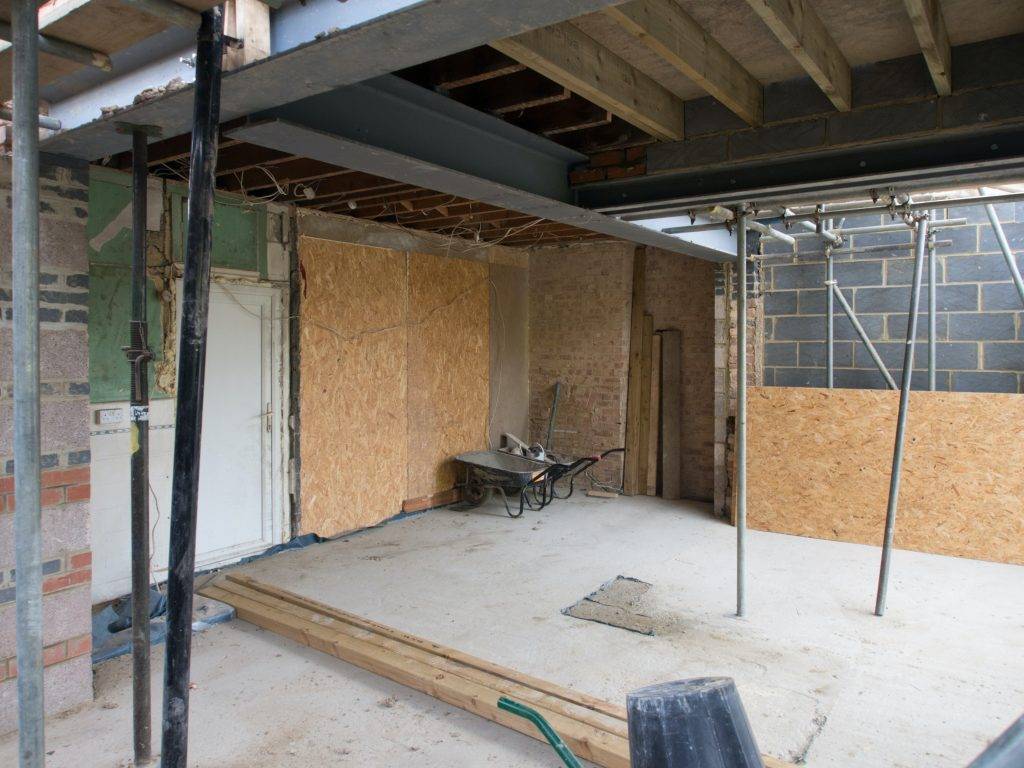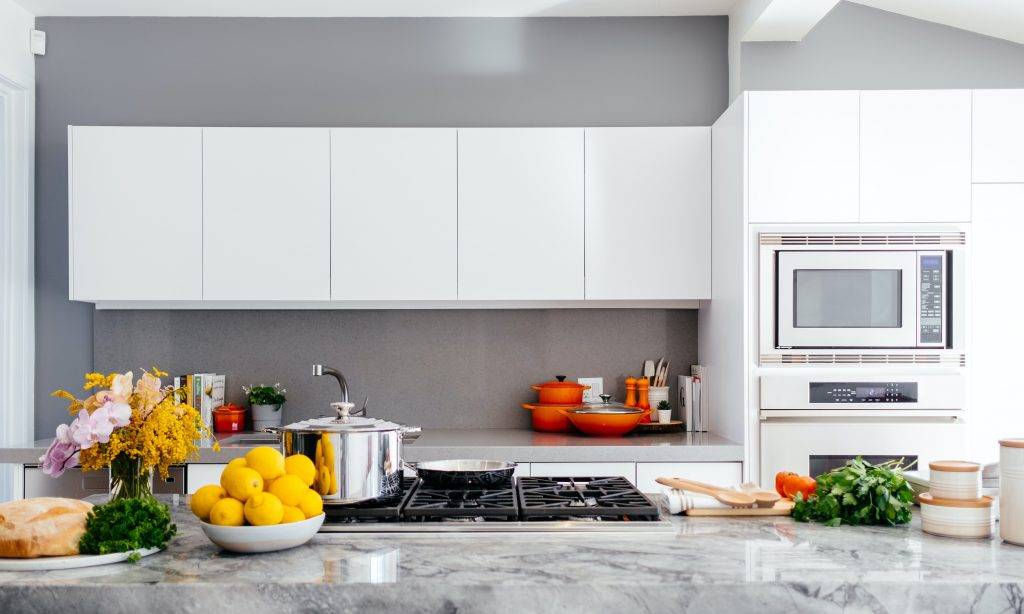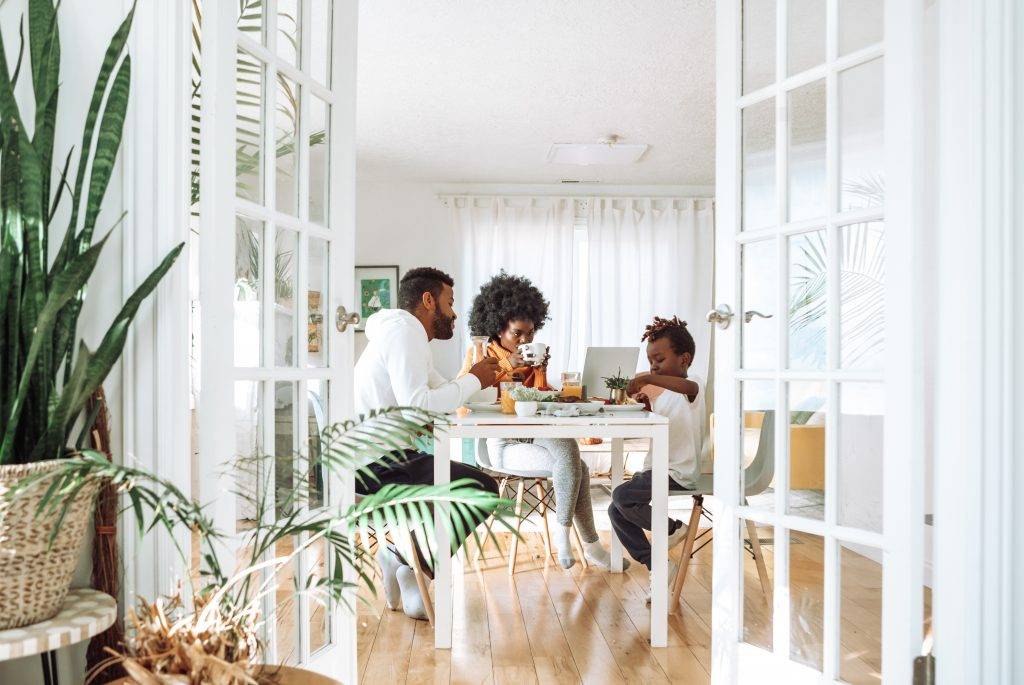-

How to Decide Whether to Move Out or Live Through a First Floor Addition, Ground Floor Extension or Renovation?
How to Decide Whether to Move Out or Live Through a First Floor Addition, Ground Floor Extension or Renovation?
Whether you are building a First Floor Addition, Ground Floor Extension or Renovation, the one question that our clients always ask us is can they stay in the home and live through construction or should they consider temporarily moving out? This is a big decision to make — with a lot of factors to consider other than your budget when entering into significant construction works to your home.
We have outlined below some of the factors to take into account when looking to stay or move.
Factor # 1 – Scope of works
 How much work is going to be done to your home? Are you doing a large scale renovation, ground floor extension or first floor addition? Are you renovating the kitchen and bathroom? These are two areas of your home that you often cannot live without for more than a few days. Is there going to be demolition? Are you renovating a completely isolated part of the house (e.g. second floor)? Can you live under the addition while being built?
How much work is going to be done to your home? Are you doing a large scale renovation, ground floor extension or first floor addition? Are you renovating the kitchen and bathroom? These are two areas of your home that you often cannot live without for more than a few days. Is there going to be demolition? Are you renovating a completely isolated part of the house (e.g. second floor)? Can you live under the addition while being built?
These are the questions to consider when deciding whether to remain living in your home or move out and allow the builders to work their magic.
Keep in mind that construction is disruptive in nature. It can cause inconveniences and interrupt your daily routine. It is also possible that you will interfere with the builders and slow things down.
Therefore, if you are:
- Conducting a large scale renovation (50% of the house)
- Doing ground floor renovations including areas like the kitchen
- Doing a demolition
- Removing toxic materials (e.g. asbestos and mould growth)
- Removing and replacing the roof
- Doing a total kitchen and bathroom overhaul
You should consider moving out to make way for the builders who will work on your home.
Factor # 2 – Budget

Can you stretch your budget to be able to afford temporary accommodation?
Budget is often a major concern for many renovators or addition and extension builders. The truth is that both moving out and staying in will incur additional expenses.
If you are planning to move out, you must prepare for the costs of short-term renting.
To save money, you could stay in an Airbnb, or a cheaper hotel/motel, go on a budget vacation, or you could ask a friend or a relative if you can stay and live with them temporarily.
If you choose to stay amidst a large-scale renovation, ground floor extension or first floor addition be prepared to order takeaway and bottled drinking water. All these are going to add up to your expenses.
Factor # 3 – Basic cooking facilities and a working bathroom
 If you choose to live through the large-scale renovation, ground floor extension or first floor addition, you might need to set up a makeshift kitchen and a temporary dishwashing area. Cooking using your outdoor kitchen or BBQ is a great idea.
If you choose to live through the large-scale renovation, ground floor extension or first floor addition, you might need to set up a makeshift kitchen and a temporary dishwashing area. Cooking using your outdoor kitchen or BBQ is a great idea.
In general, a makeshift kitchen almost works for most builds, but it is going to be a huge adjustment for everyone with them. You should be prepared to be without a full working kitchen for a least 6 weeks.
Living through a large scale renovation, ground floor extension or first floor addition is also easier when you already have two bathrooms in the house, and one remains functional while the other is being renovated. Otherwise, you need to buy a portable toilet. If you are renovating both as part of your build, be prepared to pay more if you request for them to be renovated separately instead of at the same time as the builder will incur additional travel, labour, time and site costs.
Access to water is crucial too. If you’re staying, ask your builder about the times that they need to turn off the water supply so you can create a bathroom schedule and store clean water for cooking and doing chores.
Factor # 4 – Level of tolerance and patience
 Can you deal with the noise coming from jackhammers, electric saws, welding machines, dump trucks, cement mixers, cement cutters, tamping machines, sledgehammers, and drills as early as 7AM and as late as 6PM?
Can you deal with the noise coming from jackhammers, electric saws, welding machines, dump trucks, cement mixers, cement cutters, tamping machines, sledgehammers, and drills as early as 7AM and as late as 6PM?
How about that fine gyprock dust that gets everywhere despite sealing up some parts of the house?
Can you deal with all the waste from the construction and scaffolding around your house?
Would you feel comfortable doing your daily routine with the builders and tradies walking around the house? Do you think they can do more when you’re not around?
There are the clients who can and the clients who can’t handle living through a construction zone! Which one are you? Based on experience, a lot of people commencing a large scale renovation, ground floor extension or first floor addition decide to move out in the middle of construction because they cannot bear the noise, dirt, and lack of privacy. Not having to live through the mess and chaos is a lifesaver, especially during these stressful times. You may also find you will be more excited with your new space when you move back in rather than living through the chaos to get to the end.
Factor # 5 – Length of the renovation
 When the large scale renovation, ground floor extension or first floor addition takes over your home for weeks or months, moving out is the ideal option. The builders work faster with you out of the way, which results in quicker turnaround times and more money saved on labour costs.
When the large scale renovation, ground floor extension or first floor addition takes over your home for weeks or months, moving out is the ideal option. The builders work faster with you out of the way, which results in quicker turnaround times and more money saved on labour costs.
Factor # 6 – Who are you living with?

Most couples with no children decide to live through the renovation process, but only when smaller-scale work needs to be done.
But, if you are doing major building works and you have small children, teenagers, pets, and are living with elderly members of your family, consider moving out. It would help if you got out of the way so the builders would be able to get more done quickly.
Factor # 7 – Which is more stressful? Moving out or staying in?
Whether you stay or move, your large scale renovation, ground floor extension or first floor addition can cause stress. Of course, stress is simply par for the course when building, and nearly everyone — regardless of whether they moved out or stayed put – experience some sort of challenge during the build.
Deciding to live through a large scale renovation, ground floor extension or first floor addition or to move out is a personal decision. It is up to you and your family to weigh up the pros and cons, depending on your situation. Assess the amount of work to be done and the time the builders need to finish construction. Once you know the scope of the project and the specifics of the construction and design, you’ll figure out where you will stay while the work is being done.
The most important thing is communication – confirm your selections and questions before your build commences and then allow your builder and their team breathing room to get stuck in and complete the project at hand.
<![endif]–>
